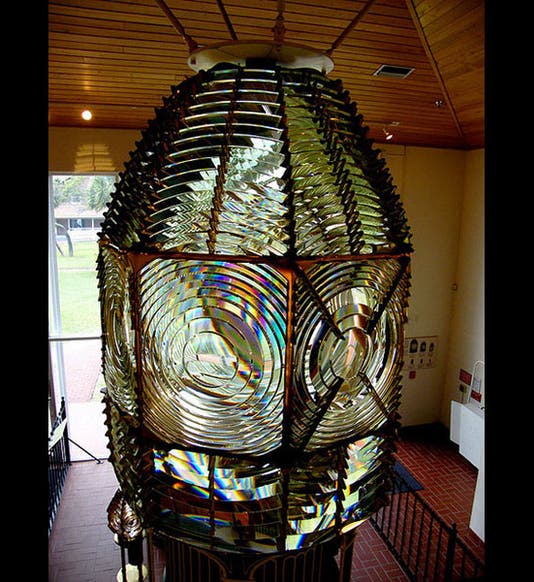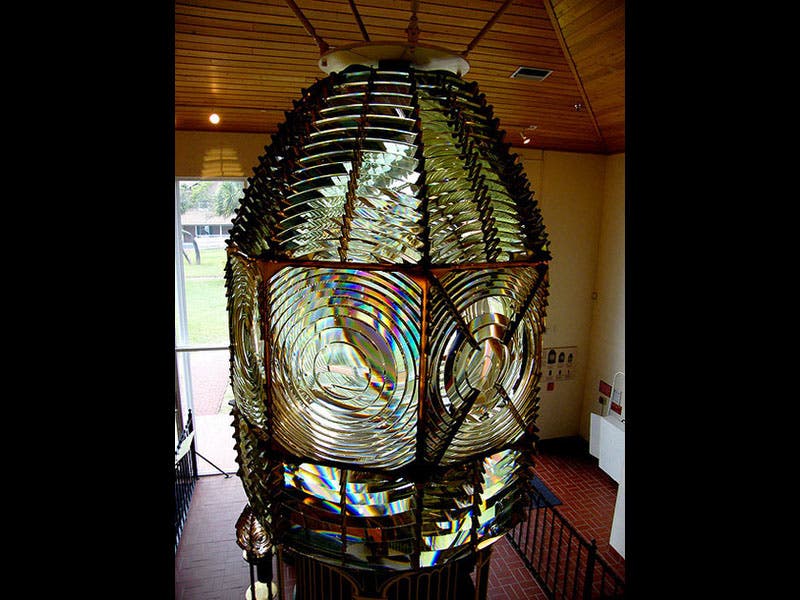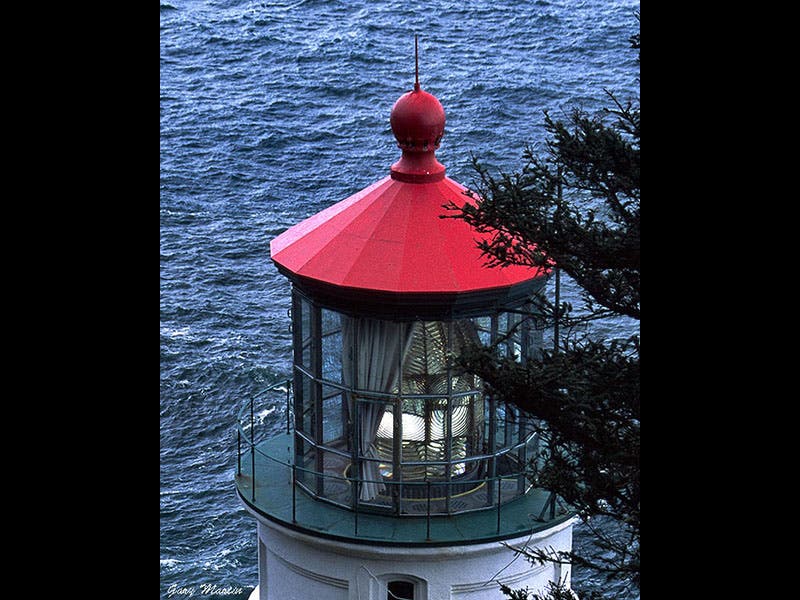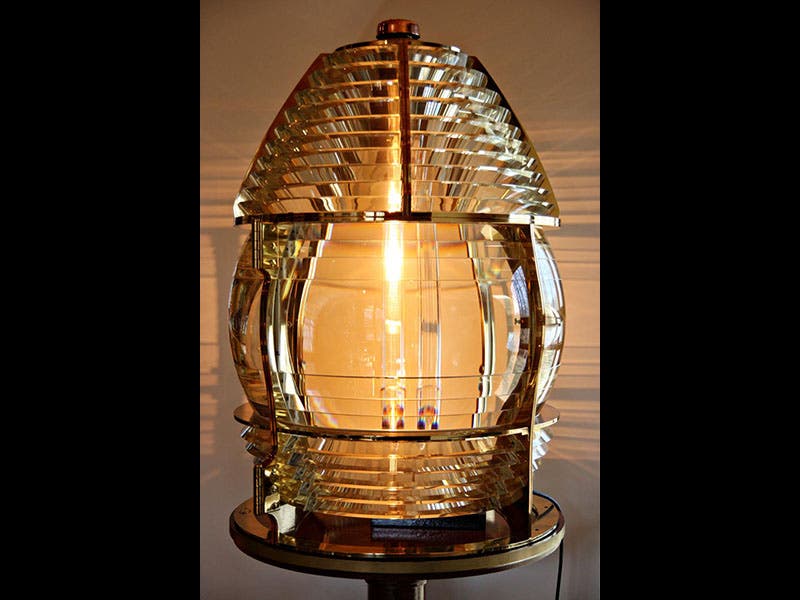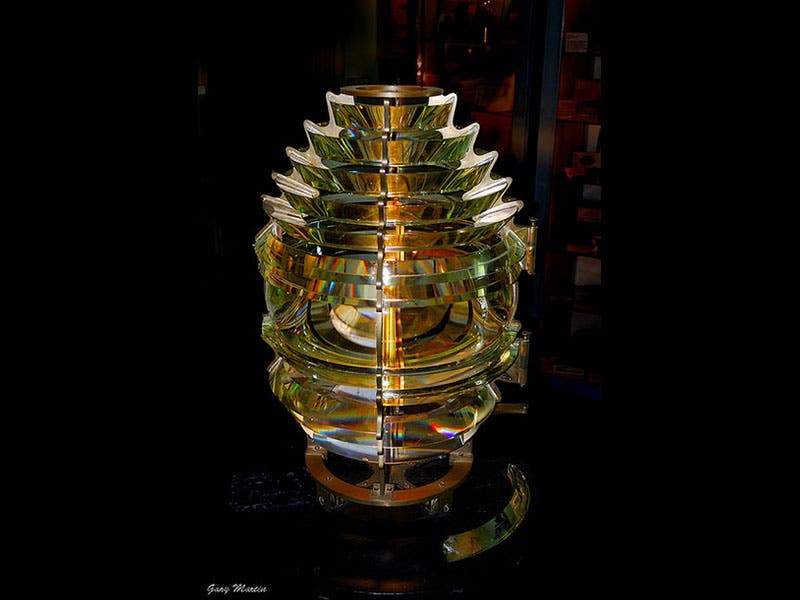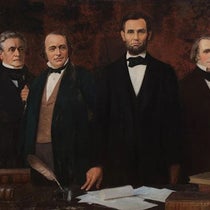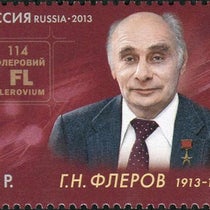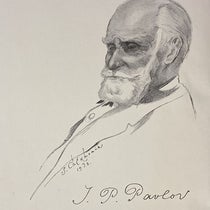Scientist of the Day - Augustin-Jean Fresnel
Augustin-Jean Fresnel, a French physicist and mathematician, was born May 10, 1788. Fresnel’s name is well-known to physicists because of his theoretical work in optics, but his greatest impact may have come from a practical device he invented, the Fresnel lens. Fresnel was asked by the French government to find some way to make lighthouses more efficient. A typical lighthouse of the day would have a kerosene flame and some sort of lens and reflector system to direct the light out to sea, but most of the light was lost, and beams were very faint. So Fresnel came up with a lens that looks like a multi-sided crystal barrel, surmounted with an elaborate crown of prisms. It was so designed that nearly every ray of light from the source is re-directed out on a horizontal path. The first Fresnel lens was installed in France in 1823, and by the 1850s they were in use everywhere. Fresnel lenses are ranked in “orders” of first through sixth; a first-order lens, the largest in ordinary use, is about 12 feet high and 7 feet wide, and sends out a beam that can be seen for over twenty miles. There are only about a dozen first-order Fresnel lenses left in the United States; each is worth millions of dollars. In our opinion, they are the most beautiful cut-glass objects ever made.
The images show, in order, a first-order lens from Cape Canaveral, now on display at Ponce Inlet, Florida; a first-order lens in place in the Heceta Head Light, Oregon; a restored third-order lens from Queensland, Australia; and a fourth-order lens at Horton Point, Long Island. Fresnel did not live to see the popularity of his invention; he died of tuberculosis in 1827, only 39 years old.
Dr. William B. Ashworth, Jr., Consultant for the History of Science, Linda Hall Library and Associate Professor, Department of History, University of Missouri-Kansas City. Comments or corrections are welcome; please direct to ashworthw@umkc.edu.

